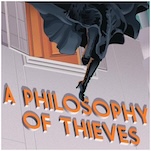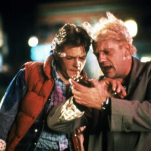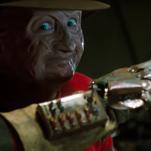Maron: “Internet Troll” (Episode 1.01)

IFC’s new show Maron opens the way you’d expect it to—with Marc Maron, stand-up, podcast host and possibly clinical narcissist…talking. About himself. Much in the same way he kicks off his WTF Podcast each week, it’s a monologue, a pathos-loaded stream-of-consciousness rumination on his own anxieties, hang-ups, hopes and dreams. But mostly it’s anxieties and hang-ups. Like these monologues, the opening moments of his show are faux-therapy, really—a riff, during which he vacillates between self-aggrandizement and self-immolation…both congratulatory and deferential. It wouldn’t seem right to begin any other way.
Eventually, another voice cuts through the blabber, asking, “Is it important that people know who you are?” It’s the type of question Maron would ask himself in the opening moments of his introduction to a more mainstream audience—he’s willing to whip himself for our enjoyment on the iTunes store. Now, he’s got this TV show and has to figure out how to reconcile the success, which runs against how he projects himself. So Maron the character on Maron the show is even more Maron than Maron the podcast host. Really.
It turns out he’s not speaking to a therapist after all—it’s actually his cats’ veterinarian—and herein lies the first new ground for Maron on TV. He interviews guests on his podcast, but he does so on his terms and in his world. There’s a “Marc Maron conversation” and a “Marc Maron question”—though these guests (he’s hosted Hank Azaria and Huey Lewis this week alone) are often arguably more famous than Maron himself, they’re stepping into his echo chamber and should be prepared to discuss their addictions, failings and disappointments with him, too.
-

-

-

-

-

-

-

-

-

-

-

-

-

-

-

-

-

-

-

-

-

-

-

-

-

-

-

-

-

-

-

-

-

-

-

-

-

-

-

-








































